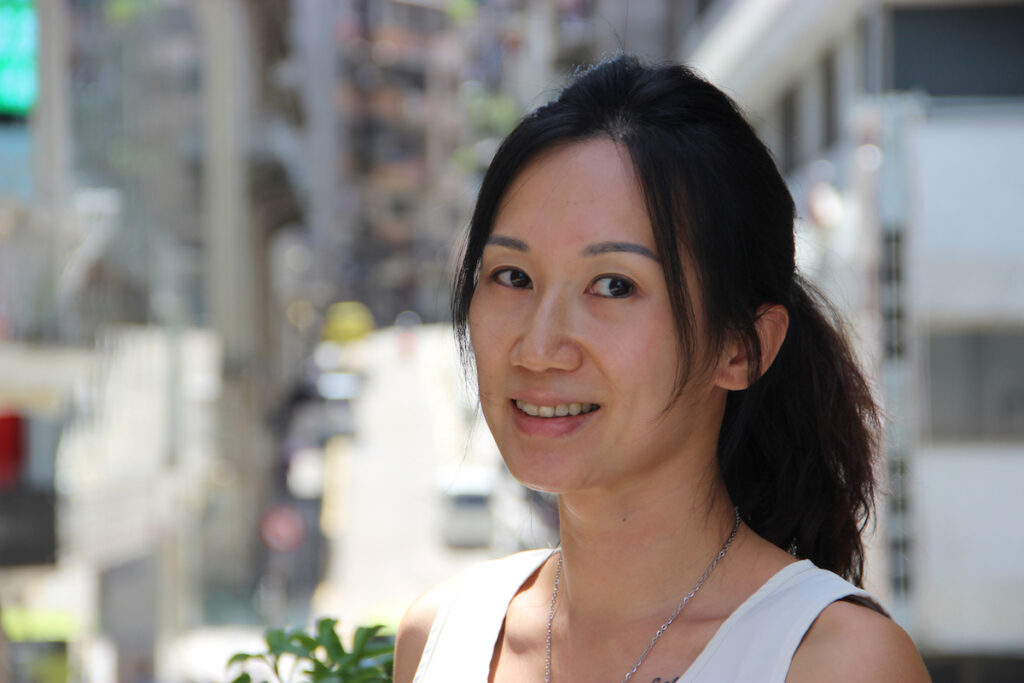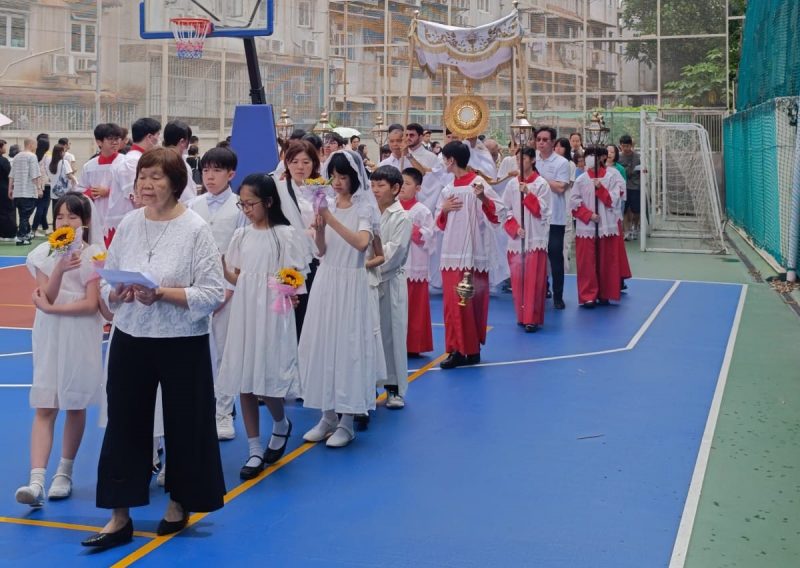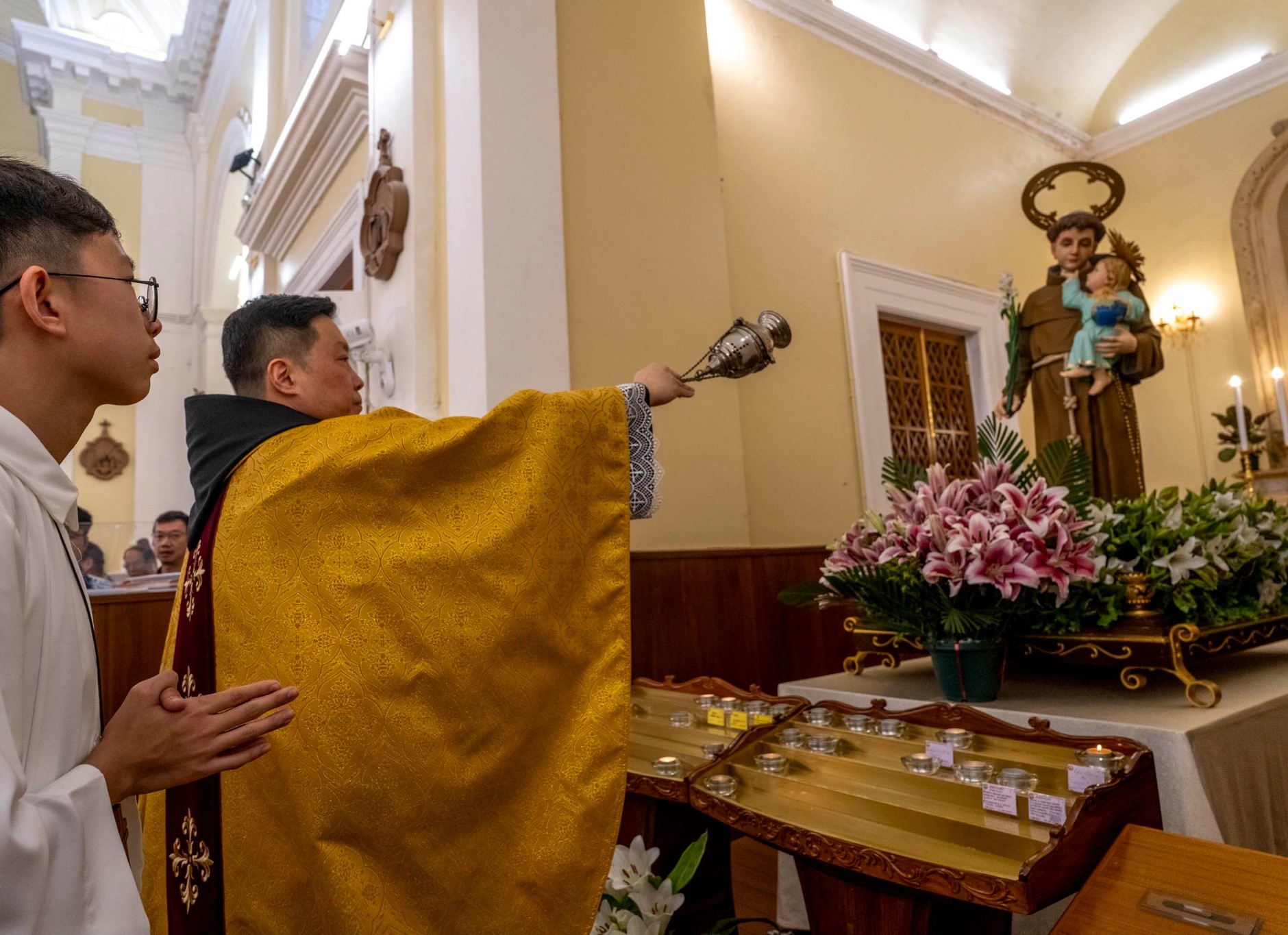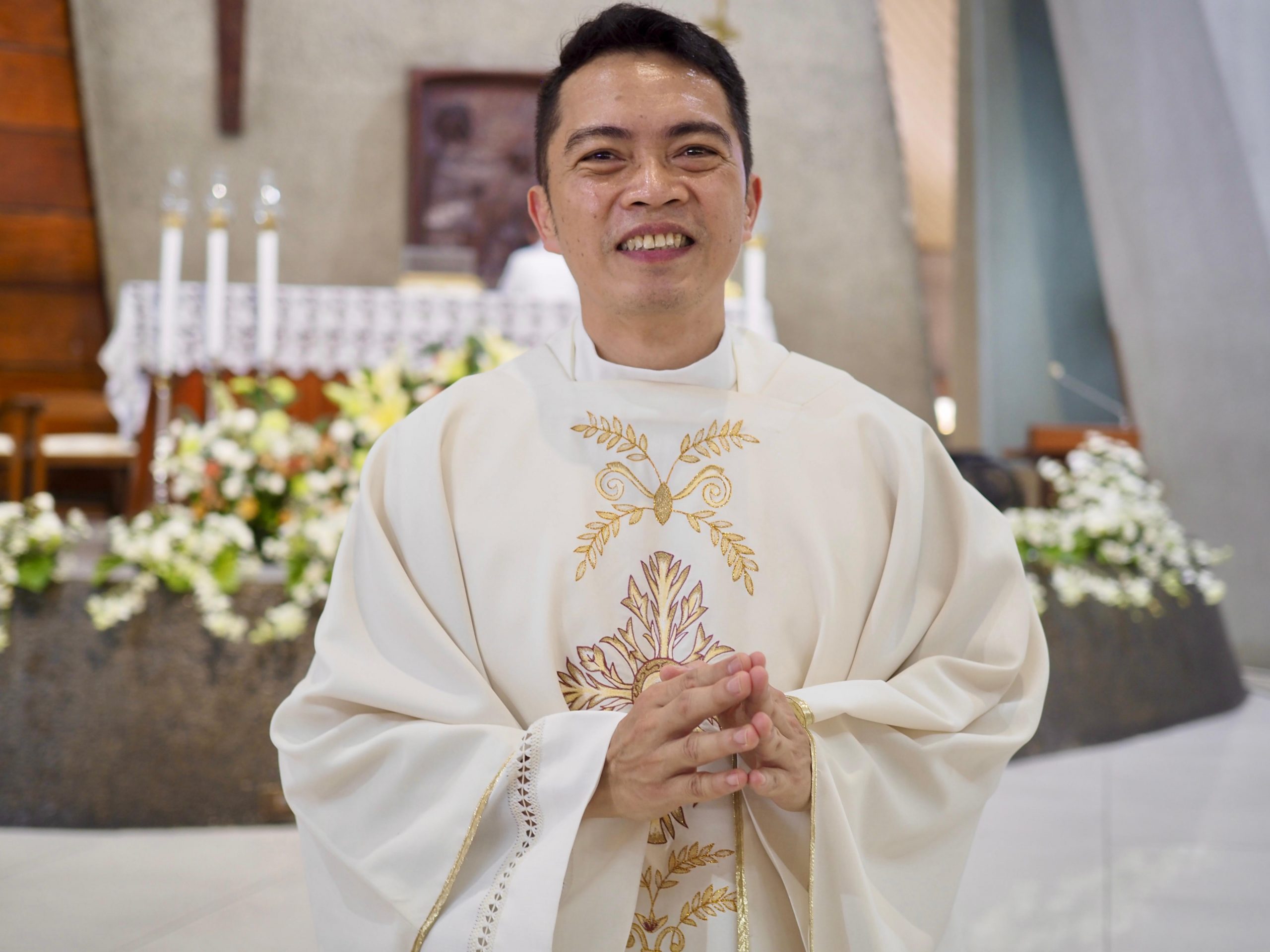Marco Carvalho
On September 19th, the Church of Saint Joseph the Worker, in Hac Sa Wan, will host two lectures – one in Cantonese and the other one in English – about Laudato Si’ and its core message. It is the first of two initiatives on environmental protection promoted by the Diocese of Macau. A week later, on the 25th of September, the same Church will host an event on recycling, promoted by the “Macau for Waste Reduction” project. Both the initiatives are the brainchild of Benvinda dos Santos Keong, a member of the Social Concern Group of the Diocesan Commission for Life. The eco-activist spoke with O Clarim.
Care for our common home. This is the central message of the encyclical letter Laudato Si’. Pope Francis had the discernment and the courage to draw all Catholics to the dialogue about environment and sustainability. As Christians, what can and what should we do to address questions such as climate change and to protect the planet we live in?
As a Catholic, but mainly as a citizen and as somebody that lives on this planet, I think we need to pay more attention to the news concerning the planet and understand a little bit more about the life cycle of a product. We read a lot about this in the newspapers or we see it on TV and most of the time the feeling that we get is that this sort of news is something from elsewhere, they don’t really concern us. People in Macau generally have the perception that these problems happen elsewhere and, so, they are not our problem. Actually, they are not. Macau is a lucky place. We don’t feel any sort of impending danger, in a sense. Actually, change is slowly happening and is becoming more and more obvious. First, we need to pay attention to the news and we need to acknowledge the problem. We also need to acknowledge how things work. Our diet and our lifestyle, for instance. We consume meat, we purchase it, but we need to know where this meat or fish comes from. If we understand that, we know that, by being a part of this process, we create a lot of pollution, a lot of rubbish. If we consume a lot of meat, we should make an effort to know where this meat comes from: there’s the agricultural part, there’s the transportation part and there’s everything. This lifecycle is creating more and more pollution. If we understand that, we will know what action to take.
Is that sort of perception increasing in Macau? Are Macau residents aware of the challenges they face?
They are aware that there’s a pollution problem, but they are not aware that they are causing the pollution. We are talking about every single thing that we use nowadays. For example, a shampoo bottle… It’s something very ubiquitous, right? You need shampoo, you can get it from the supermarket. What people don’t acknowledge is that, when they buy the shampoo, they are also buying rubbish. After we finish using the shampoo, the bottle instantly becomes rubbish. It’s plastic and if we don’t recycle, this bottle will be retained in the environment. We need to break these habits. We need to evaluate the things we have been doing and to understand if they are causing the problem. We need to change that. And people need this information. When we talk about plastic pollution or climate change, people assume this problem is so big that the only way to improve things is if the Government solves it. They are not really aware that we, everyone of us, is causing the problem. Nobody can solve it for you, unless we do it ourselves. We need to take that step. In our society, citizens, the private sector and the Government, we work hand in hand together. If we, consumers, promote change, the industries will also change the way they work. The Government should facilitate the Law or the infrastructure, so that change will happen. We need to work hand in hand together. We cannot expect for someone else to solve the problem. We need to take action too.
Laudato Si was published six years ago, in 2015. Do you think the Catholics’ perception of environmental issues has changed since the encyclical was published?
Every week, when we go to Church, the priest will preach about the Bible, but I don’t think Catholics are really able to put those teachings into practice. You know what I mean? For the last 15 years, people have been enjoying Macau’s economic growth. Nowadays, it’s very cheap to buy, it’s very easy to get stuff. We are reaping all the benefits of modern life: we order take away food, we buy clothes online. It’s very easy to do that. It is just a snap. But we forgot that when things go too far, we might be causing a problem. When we buy too much, when we incur in over purchasing, we are generating a lot of pollution, we are making a lot of rubbish. People are going a little too far to take advantage of the benefits of the modern world. We need to take one step back. We can’t forget that there are a lot of poor and poverty around the world. We are the lucky ones. We can enjoy all the benefits. That’s why at the beginning I said we need to have a better understanding of the lifecycle of everything. You know, the clothes that we buy are probably made by someone very poor in some poor part of the world and they may live in very bad conditions, so we need to understand that everything that we do, small as it may be, will probably impact someone else. If we make the purchase, we are supporting that industry. If we over purchase, we are contributing to widespread pollution. If we acknowledge that, I am sure some of the people around us will be willing to change. If we go shopping every week, maybe we can shop less.
You will be the guest speaker at one of the first events about Laudato Si’ promoted by the Diocese of Macau. What is this event about? Can it set the tone for a greater involvement by the local Catholic Church?
Actually, I have been expecting this talk and to work with the Diocese and with my community for a while. We are Catholics and we are expected to practice love. You practice what you preach, right? For me, it is important to practice love, to help people. You don’t do it through a donation or a one-time off event. You do it in your everyday life. If you know that your action is causing problems to your surroundings, if you think about the poor, if you think about the other species that we are killing and that are vanishing, we try to adjust our life so we can save them or, at least, so that we don’t do so much damage to them. If you have that sort of mind-set, you can just practice the teachings of the Bible, you can practice love everyday. It’s not merely a one time event or one time donation. You do it in your everyday life.
You are a Catholic, a mother and an eco-activist. Three years ago, you launched the “No Plastics Please” campaign and you are one of the organizers of the “Macau for Waste Reduction” initiative. In a over-crowded place like Macau, how hard is it to fight for the protection of the environment?
Geographically wise, I think Macau is in a very good position to make a change, you know? If that effort involves a lot of people, like in Hong Kong and other places, it might be harder to make everyone else live according to our principles, but I think that Macau has a quite good scale and I think that, generally speaking, in Macau people are quite nice and they have a greater acceptance. They just need to acknowledge what is the cause of these problems. In general terms, I think that Macau people are quite open to this sort of information and they are helpful in a sense. Nevertheless, and once that Macau people are quite well off, they are still very much enjoying the benefits of this sort of wealth. Macau is a touristic city. There’s a lot of talk about offering services and giving the tourists a luxurious experience. They are providing a lot of one-off bottles, greeting cards, giveaways and souvenirs, but if we include an eco-friendly strategy into the business, we could actually offer them another kind of experience. We can have an eco-friendly Macau, we can have eco-friendly businesses. We can show the world that we are a city that is committed to protect the Earth. We can present another image, not only of a luxurious city or whatever. I think Macau is in quite a good position to make a change. It’s probably easier in Macau than in other countries.
The government announced recently that it will ban the import of non-biodegradable plastic straws starting from next year. This kind of change have been happening, albeit slowly. Are they enough to allow for a more sustainable city? Or should the government be more ambitious?
Because they should adopt a leading role, I expect them to do a lot better. For the last two years, we have really seen some improvement, mainly in their attitude, but, as a Government, I think it could do better. Is it called the “Pay-As-You-Throw” program? That principle is that the one who produces rubbish has to pay. You know? This has to be done. We cannot expect another ten years to convince everyone to be eco-friendly. The Government is in a leading role. Whoever makes rubbish unnecessarily needs to pay. In Macau everything is so cheap. If we throw garbage out, if we dump a lot of things, we don’t need to pay. Once people need to pay, they will have a greater awareness about the rubbish they produce. This is really effective. I think this has to be done as early as possible. For the Government, I think that not only the Environmental Protection Bureau has to do the recycling or waste management, but this has to happen across all Government sectors. They need to convey the attitude that the Government is working on this too, like they do with Covid-19. We feel the pressure, we feel the seriousness of this problem, because the Government presented this problem that way. We don’t see that with climate change or pollution. You know, we don’t feel the same sort of seriousness. We don’t feel the pressure, we don’t feel the need to work on it. We don’t feel that.
Despite the efforts you and other persons have taken, plastics are still an issue in Macau and recycling is not a common practice. Environmental and ecological practices such as recycling and composting receive the attention they deserve on school programmes?
Let me first talk about recycling. We acknowledge this problem and that’s why we promote the “Macau for Waste Reduction” initiative. We are directly dealing with the recycling companies. We make sure everything is clean and sent to the recycling company. And that is also why we proposed to teach that in Macau recycling has to be done methodically: we need to wash the discarded things, to classify them into different categories. I have three kids, I know the local textbooks. I saw their text books teaching them how to recycle, according to paper, plastic and metal. But they don’t classify the disposed material into small types. One day, I asked the teacher: “OK. You teach about this. Do you recycle in your office or at home?” And he said: “No”. They just don’t have this habit. They don’t have the initiative to make kids talk about it. And that is why we – “Macau for Waste Reduction” – are here. We are always approaching local schools, like the Portuguese School or Perpetual Help College. These are the schools we keep a closer contact with. We set up the recycling system for them and when people see it in person, they realize it is not that bad, it’s easy to do, so everyone can do it. They just need someone to show them, to explain in front of their eyes, so they know what to do and they don’t have to guess if their things are going to get recycled. In terms of the recycling bins out there, I know that people are convinced that the garbage is thrown all together, they are not recycling. It is partially true. I know that if it is clean, they will extract the recyclables and send them to the recycling companies. But if things have food or any sort of beverages inside, they cannot really wash them and they will put them in the garbage bin. Partially, it is our fault too. People treat the recycling bin as a rubbish bin. It’s not only the Government’s fault, it’s our fault too. They don’t know how to recycle correctly. You were asking about the schools, right? Yes, I think that, if we really want to prepare the new generations for the future, schools need to change their curricula. If you want to embrace an eco-lifestyle, actually you can find a lot of answers from nature. Even with things like the clothes detergent, we can actually extract enzymes from the orange peel or the pineapple peel. I think that we can try to go back to nature. You know, there are so many problems in the world, right? Just pick up one or two and, you know, find a solution. It’s not just about teaching math or whatever. We know it is important, but we can add subjects like that. There are many problems in the world. Pick one and solve it.
Are the new generations better prepared to tackle these issues?
I can tell they have a greater appreciation, but when they get back home, their parents are not doing much to change things. I think it develops a very bad habit, ignoring these changes. They acknowledge it, but when they are back home, they don’t see adults doing anything. It gives them the very bad habit of ignoring this sort of issues and that is really bad. That is why, in my point of view, we need to encourage and influence their parents and their peers. I try to convince them to do it at home. The kids are always ready to help. If you do this sort of thing at home, they will be really willing to help. I became a vegetarian, mostly vegan, two years ago. I told my son about climate change and about how the meat we consume is causing the problem and my son gave up beef for this reason. Actually, they are willing to help.
You were mentioning the work you are doing with the local schools, with the “Macau for Waste Reduction” initiative. What other projects do you have in your hands? What sort of initiatives are you willing to develop?
In the past two years, we didn’t act as an organization. We merely promoted random initiatives. But we wrote many proposals and we sent them to the local schools. We want every school to set up a proper recycling system, whether they do it with us or we just help them to kick start the project first. It’s useless to teach without practicing. In Macau, as every area has a school, I think it would be very good if schools could provide an up station in each area. Churches could be part of this process as well. And that is why I approached the Church and convinced the Church to do it. The event on the 24th, this is their first trial.
“Laudato Si” is an invitation to everyone on the planet to care for our common home. How can we personally respond to the core message of the encyclical?
You know, in life, I always have the feeling that we only try to help others only when we are available or when we have an abundance of resources, but actually we can do a bit more. We are able to sacrifice a little bit of our convenience, to sacrifice a little bit of our urge to spend. We can step up a little bit on the way we help the poor and the other living species that we share the Earth with. Whenever we opt for spending less and less or consume a little bit less, we are actually helping. Only if you have this attitude in mind, I am sure everyone will find its own way to be eco-friendly.


 Follow
Follow


